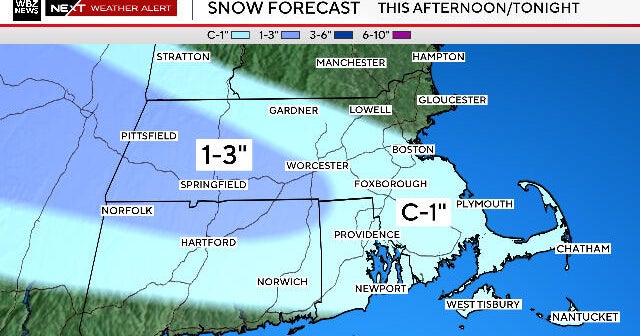How climate change is raising the cost of food
Agricultural experts have long predicted that climate change would exacerbate world hunger, as shifting precipitation patterns and increasing temperatures make many areas of the world unsuitable for crops. Now, new research suggests a warming planet is already increasing the price of food and could sharply drive up inflation in the years to come.
A working paper by researchers at the European Central Bank and the Potsdam Institute for Climate Impact Research analyzed historic price fluctuations along with climate data to figure out how that has affected inflation in the past, and what those effects mean for a warming world.
The upshot: Climate change has already pushed up food prices and inflation over all, the researchers found. Looking ahead, meanwhile, continued global warming is projected to increase food prices between 0.6 and 3.2 percentage points by 2060, according to the report.
To be sure, where inflation will fall within that range will depend on how much humanity can curtail emissions and curb the damage from climate change. But even in a best-case scenario in which the entire world meets Paris Agreement climate targets, researchers expect food inflation to rise.
"[I]nflation goes up when temperatures rise, and it does so most strongly in summer and in hot regions at lower latitudes, for example the global south," Maximilian Kotz, the paper's first author and a scientist at the Potsdam Institute for Climate Impact Research, said in a statement.
How much could food prices rise?
Global warming affects crops in several ways. Yields of corn, a staple crop in many warm countries, fall dramatically after the temperature reaches about 86 degrees Fahrenheit. A 2021 study by NASA researchers found that global corn yields could drop by 24% by the end of the century. Rice and soybeans — used mostly for animal feed — would also drop but less precipitously, according to a recent report from the Environmental Defense Fund said.
- Are Canadian wildfires under control? Here's what to know.
- New York City air becomes some of the worst in the world
- Another major insurer is halting new policy sales in California
Poor countries feel the effects of high prices more, but all nations will be affected by climate-fueled inflation, the researchers said.
In just over a decade, inflation is projected to increase U.S. food prices by 0.4 to 2.6 percentage points in a best-case scenario in which emissions are lowered, Kotz told CBS MoneyWatch in an email. In a high-emission scenario, the inflation impact could be as high as 3.3 percentage points by 2035, and up to 7 percentage points in 2060.
"Impacts from other factors such as recessions, wars, policy, etc., may obviously make the actual future inflation rates different, but these are the magnitudes of pressure which global warming will cause, based on how we have seen inflation behave in the past," he said.
In the two decades before the COVID-19 pandemic, U.S. food prices rose about 2% to 3% a year, although annual food inflation surged to 11% last summer. In other words, a 3% jump in food prices from climate change is a significant hit for nations like the U.S. that strive to keep the annual rate of inflation at about 2%.
The future is now
In the European Union, climate change is already pushing up food costs, the researchers found. Last summer, repeated heat waves dried up the continent's rivers, snarling major shipping routes and devastating farmland.
The resulting crop failures in Europe have occurred at the same time that Russia's war in Ukraine has driven up the price of wheat. Weather extremes pushed up European food prices by an additional 0.67 percentage points, the researchers found. In Italy, the rising cost of staples has caused the price of pasta to soar.
"The heat extremes of the 2022 summer in Europe is a prominent example in which combined heat and drought had widespread impacts on agricultural and economic activity," they wrote.



